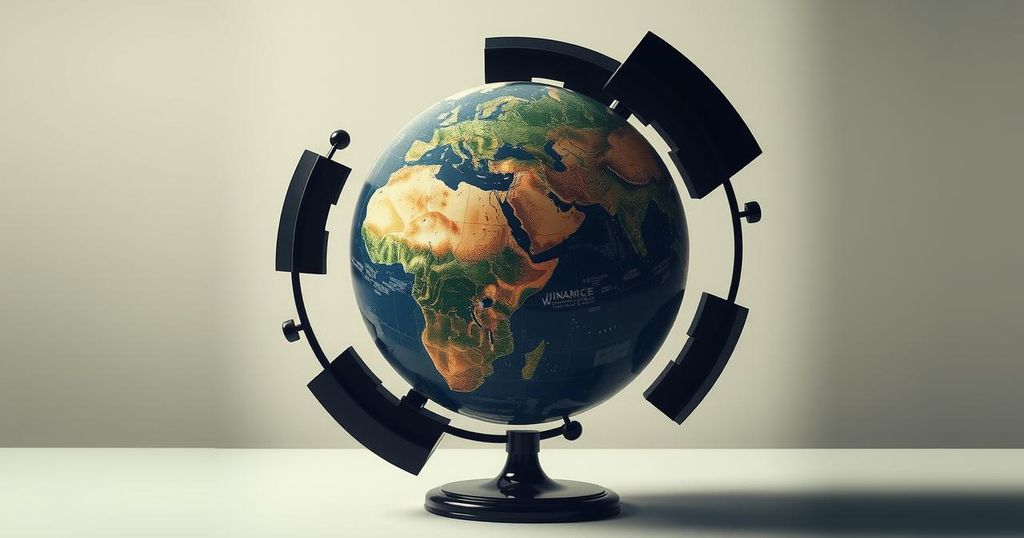Sue Williamson, an artist with a long history of activism against apartheid, criticizes US President Donald Trump and Elon Musk for undermining South Africa amid political tensions. As she prepares for a retrospective exhibition, Williamson emphasizes the importance of historical understanding in confronting current issues, particularly land expropriation and international relations.
Sue Williamson, a prominent anti-apartheid artist, has dedicated over 50 years to highlighting issues in South Africa, first combating apartheid and now examining the nation’s progress in healing and memory. As she prepares for her retrospective exhibition at the Iziko South African National Gallery, her focus has shifted to critiquing US President Donald Trump and billionaire Elon Musk, whom she accuses of gaslighting South Africa amid contentious international relations.
The recent controversy ignited after Musk criticized South Africa’s policies on social media, followed closely by Trump’s executive order that threatened to cut aid to South Africa. This order accused the South African government of racial discrimination against white Afrikaners while asserting that South Africa has made aggressive accusations against the US and its allies regarding Israel. Williamson argues that this narrative undermines South Africa’s credibility, particularly in light of a recent lawsuit against Israel, accusing it of genocide against Palestinians.
Williamson vehemently rejected claims made by US officials that South Africa is unlawfully expropriating land from white farmers. She pointed out that the process is much more nuanced, referencing the historical injustices of the 1913 Land Act which dispossessed black farmers. Recent legislative changes allow for land expropriation without compensation in certain circumstances but highlight the still unequal ownership of land in South Africa.
Having initially pursued a career in advertising, Williamson began creating activist art after returning to South Africa in 1969. Her activism intensified following the 1976 Soweto uprising, where she joined a multiracial group pushing against racial segregation. Throughout her career, her art has chronicled the struggles against apartheid, using powerful installations to document and protest against injustices.
In conclusion, Sue Williamson’s work serves not only as a reflection on South Africa’s tumultuous past but also as a critique of current political narratives impacting the nation. With aspirations to spark dialogue and awareness through her art, Williamson emphasizes the importance of understanding history to navigate contemporary issues effectively. Adding voices of the past remains vital in shaping an informed future for younger generations.
Original Source: www.theguardian.com






